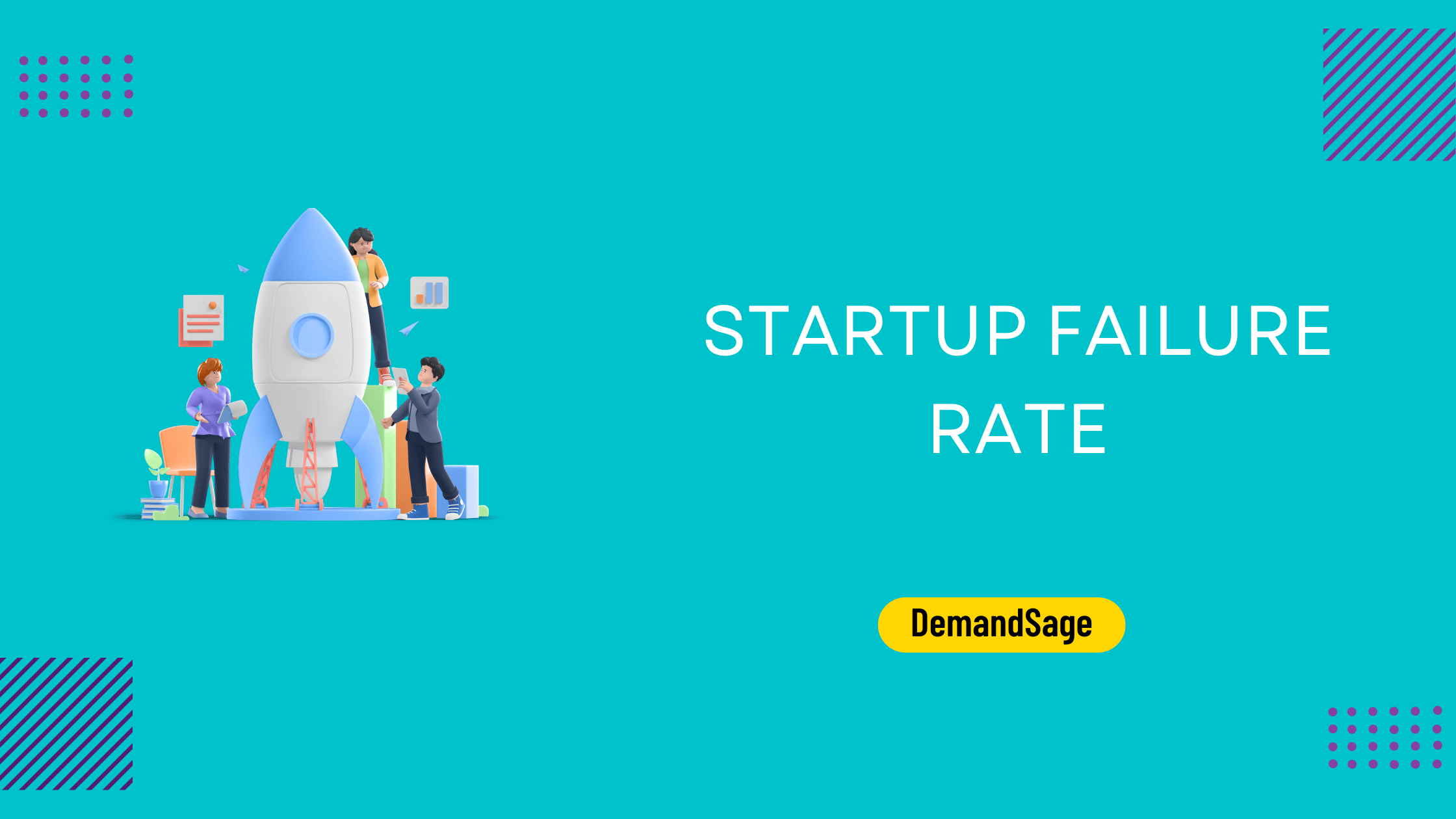Understanding Food Startup Failure: Key Challenges And Solutions

Table of Contents
Lack of Market Research and Validation
Thorough market research is the cornerstone of any successful food startup. Many businesses fail because they launch products without a clear understanding of their target market or the competitive landscape. Insufficient market analysis can lead to disastrous results.
- Insufficient understanding of target market needs and preferences: Launching a product without knowing what your customers want is a recipe for disaster. Are you targeting health-conscious consumers, families, or a specific niche demographic? Understanding their needs and preferences is critical for product development and marketing.
- Failure to identify and analyze competitors: Knowing your competition is vital. What are their strengths and weaknesses? How can you differentiate your product or service to stand out? Competitive analysis is crucial for market positioning.
- Lack of a clear value proposition: What makes your product unique and desirable? Why should consumers choose your product over the competition? Defining your unique selling proposition (USP) is critical for attracting customers.
- Ignoring market trends and consumer demands: The food industry is dynamic. Staying updated on emerging trends, such as plant-based diets, sustainable sourcing, and convenient meal solutions, is crucial to remain competitive.
Solutions: Conduct comprehensive market research using surveys, focus groups, and competitor analysis. Develop detailed customer profiles, and validate your business idea through pilot testing and minimum viable product (MVP) launches. Analyzing consumer insights and understanding the competitive landscape are crucial steps to avoid food startup failure.
Inadequate Funding and Financial Management
Securing sufficient funding and managing finances effectively is paramount for food startups. Underestimating startup costs or mismanaging cash flow can quickly lead to financial instability.
- Underestimating startup costs: Food startups often require significant upfront investment in equipment, ingredients, permits, and marketing. A realistic budget that accounts for unexpected expenses is essential.
- Poor cash flow management: Maintaining positive cash flow is critical. Accurate forecasting, efficient expense management, and timely invoice collection are crucial.
- Lack of a robust financial plan: A well-defined financial plan, including projected income statements, balance sheets, and cash flow projections, is essential for attracting investors and securing funding.
- Difficulty securing funding from investors: Investors require a compelling business plan and a clear understanding of the market opportunity. Demonstrating a strong financial model and a viable exit strategy is vital.
Solutions: Develop a comprehensive financial model, explore various funding strategies (e.g., bootstrapping, loans, angel investors, venture capital), manage expenses diligently, and track key financial metrics regularly. Understanding your burn rate and developing realistic financial projections is crucial for long-term success.
Operational Challenges and Supply Chain Issues
The food industry involves complex processes, from sourcing ingredients to production, distribution, and logistics. Operational inefficiencies can severely impact profitability and customer satisfaction.
- Difficulties in sourcing high-quality ingredients: Maintaining a consistent supply of high-quality ingredients is crucial for producing a high-quality product. Establishing strong relationships with reliable suppliers is key.
- Inefficient production processes: Optimizing production processes, reducing waste, and improving efficiency are critical for controlling costs and ensuring timely delivery.
- Problems with inventory management: Effective inventory management prevents spoilage, reduces waste, and ensures sufficient stock to meet demand.
- Challenges in distribution and logistics: Efficient distribution and logistics are critical for getting your product to market on time and in good condition. Developing a strong distribution strategy is essential.
Solutions: Establish strong relationships with reliable suppliers, invest in efficient production processes, implement robust inventory management systems, and develop a well-defined distribution strategy. Effective supply chain management is crucial for preventing food startup failure.
Marketing and Sales Struggles
Effective marketing and sales are essential for reaching your target audience and generating revenue. Many food startups struggle to build brand awareness and drive sales.
- Insufficient brand awareness: Building a strong brand identity and creating awareness through targeted marketing campaigns are essential for success.
- Weak marketing and advertising campaigns: Effective marketing requires a well-defined strategy, clear messaging, and consistent execution across multiple channels.
- Inability to reach the target audience: Understanding your target audience and utilizing appropriate marketing channels are crucial for reaching your ideal customers.
- Lack of a strong sales strategy: A well-defined sales strategy, encompassing sales channels, pricing, and customer relationship management, is essential for generating revenue.
Solutions: Develop a comprehensive marketing plan incorporating digital marketing, social media marketing, and public relations. Build a strong brand identity, use effective customer acquisition strategies, and focus on building strong customer relationships.
Regulatory Compliance and Legal Issues
Navigating the regulatory landscape of the food industry is critical. Non-compliance can lead to significant penalties and legal issues.
- Lack of understanding of food safety regulations: Understanding and adhering to food safety regulations, such as FDA guidelines and local health codes, is paramount.
- Failure to obtain necessary licenses and permits: Obtaining all necessary licenses and permits is a legal requirement before starting operations.
- Issues with labeling and packaging: Accurate and compliant labeling is crucial for avoiding legal problems and ensuring consumer safety.
- Legal disputes with suppliers or customers: Maintaining strong relationships with suppliers and customers and addressing disputes promptly is essential.
Solutions: Seek professional legal and regulatory advice to ensure compliance with all relevant food safety regulations and obtain necessary licenses and permits. Maintain accurate records and prioritize clear communication with suppliers and customers.
Conclusion
Avoiding food startup failure requires meticulous planning, effective execution, and a willingness to adapt to the dynamic nature of the food industry. The key challenges we've discussed—lack of market research, inadequate funding, operational issues, marketing struggles, and regulatory compliance—highlight the critical importance of thorough preparation and proactive risk management. To avoid food startup failure, remember the importance of comprehensive market analysis, securing adequate funding, optimizing operations, implementing effective marketing strategies, and ensuring regulatory compliance. By utilizing the insights provided and conducting further research, you can significantly increase your chances of building a successful and sustainable food business. Learn more about successful food business strategies and overcome challenges in the food industry to achieve your entrepreneurial goals.

Featured Posts
-
 Immediate Reactions Analyzing Barcelonas Thrilling 4 3 Victory Against Real Madrid
May 29, 2025
Immediate Reactions Analyzing Barcelonas Thrilling 4 3 Victory Against Real Madrid
May 29, 2025 -
 Hot Deal Nike Air Max Excee Shoes 57 Sale
May 29, 2025
Hot Deal Nike Air Max Excee Shoes 57 Sale
May 29, 2025 -
 Ajax Trainerspositie Van Hanegems Aanbeveling
May 29, 2025
Ajax Trainerspositie Van Hanegems Aanbeveling
May 29, 2025 -
 Lula To Urge Putin Zelenskyy Istanbul Meeting
May 29, 2025
Lula To Urge Putin Zelenskyy Istanbul Meeting
May 29, 2025 -
 Federal Judge Rules Against Trumps Actions Targeting Wilmer Hale
May 29, 2025
Federal Judge Rules Against Trumps Actions Targeting Wilmer Hale
May 29, 2025
Latest Posts
-
 Kee To Bala Summer Concert Series Kicks Off Victoria Day Weekend
May 30, 2025
Kee To Bala Summer Concert Series Kicks Off Victoria Day Weekend
May 30, 2025 -
 Harga Kawasaki Z900 Dan Z900 Se Di Indonesia Faktor Faktor Yang Mempengaruhi
May 30, 2025
Harga Kawasaki Z900 Dan Z900 Se Di Indonesia Faktor Faktor Yang Mempengaruhi
May 30, 2025 -
 Kawasaki Ninja Series Get R45 000 Discount Now
May 30, 2025
Kawasaki Ninja Series Get R45 000 Discount Now
May 30, 2025 -
 Alasan Harga Kawasaki Z900 Dan Z900 Se Lebih Murah Di Indonesia
May 30, 2025
Alasan Harga Kawasaki Z900 Dan Z900 Se Lebih Murah Di Indonesia
May 30, 2025 -
 Memilih Kawasaki W175 Cafe Panduan Membeli Motor Retro Modern
May 30, 2025
Memilih Kawasaki W175 Cafe Panduan Membeli Motor Retro Modern
May 30, 2025
